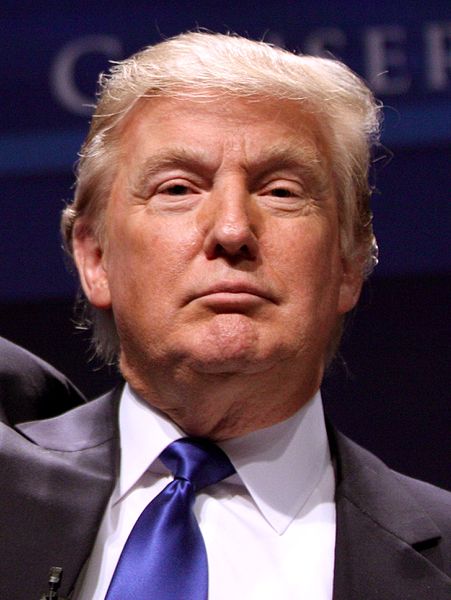Trump’s Secret Service protection may be obstacle to imprisonment. Donald Trump has the option to retain Secret Service protection for life, even if he were to be found guilty and sentenced to jail or home confinement.
If convicted in any of the three criminal cases he is currently facing, Donald Trump might be able to influence whether he goes to prison and what his stay there looks like under a law that allows former U.S. presidents to keep Secret Service protection for life, some current and former U.S. officials said.
The Secret Service has afforded lifetime protection to presidents since 1965. Since then, only Richard M. Nixon has waived it, as a cost-saving move for taxpayers 11 years after his resignation.
Trump may pose questions on protection logistics: agents in prison, prison authorities, or home confinement, former officials said.
Could Trump face prison? “Theoretically, yes and practically, no,” said Chuck Rosenberg, a former top federal prosecutor and counsel to then-FBI Director James B. Comey. Rosenberg, former DEA head under Trump, accused the president of condoning police misconduct by making certain remarks.
Rosenberg said any federal district judge ought to understand that it raises enormous and unprecedented logistical issues if Trump could be incarcerated. “Probation, fines, community service and home confinement are all alternatives.”
Trump’s Ongoing Criminal Cases and Challenges for the Justice Department
Trump is now facing three, separate criminal cases, with the prospect of at least one more on the horizon. He has a pending March trial date in a New York state fraud case. Trump faced charges in federal court over classified document handling at Mar-a-Lago after leaving White House. In federal court in D.C., Smith’s team alleges Trump conspired to subvert the results of the 2020 election. Authorities could soon charge him in Georgia on similar allegations.
Charges against Trump carry potential decades in prison, though pleas, verdicts and possible punishments are very far off.
Mary McCord, who served as acting assistant attorney general for national security during President Barack Obama’s administration and led the department for the first several months under Trump, said Trump presents unique challenges to the Justice Department. Ensuring some penalty for a former president under Secret Service detail would require extensive discussions and potential accommodations, “because it really would be a pretty enormous burden on our prison system to have to incarcerate Donald Trump.”
The question is an open one at the U.S. Secret Service. Agency spokesman Anthony Guglielmi said, “The Secret Service does not have a comment or response, only because there is no such policy or procedure that currently exists,” when asked whether they can incarcerate a former president who does not waive protection.

“We won’t have any further comment,” added Marsha Espinosa, spokeswoman for the Secret Service’s parent agency, the Department of Homeland Security.
Secret Service Protection for Imprisoned Ex-President
Former and current Secret Service agents foresee 24/7 protection for an imprisoned former president, planning for that possibility.
Jonathan Wackrow, a former Secret Service agent and now chief operating officer for Teneo Risk, a corporate advisory and communications firm, said, “This question keeps getting raised, yet no official answers” from the Secret Service. “However, we can infer how security measures could be implemented based on existing protective protocols.” Unless there are changes in legislation or the former president waives protection, the U.S. Secret Service would likely maintain a protective environment around the president in accordance with their current practices.”
Agents coordinate with Bureau of Prisons to manage protection duties and emergencies during Trump’s prison routine.
The Secret Service, they said, would maintain a bubble around Trump in any case, keeping him at a distance from other inmates.
“In some ways, protection may be easier – the absence of travel means logistics get easier and confinement means that the former president’s location is always known,” Wackrow said. “Theoretically, the perimeter is well fortified – no one is worried about someone breaking into jail.”
The Justice Department’s Bureau of Prisons declined to disclose whether they could incarcerate former presidents with Secret Service protection or comment on circumstances of a potential Trump designation. However a spokesman said general factors can include the level of security an inmate requires, any health needs, proximity to their release locations and “separation and security measures to ensure the inmate’s protection.” The bureau has had to handle VIP inmates in the past, though minimum security camps often have dormitory-style housing.
Another agency official said it was in a position similar to the Secret Service, lacking a policy or procedure.
Potential decades in prison loomed over Trump; he claimed they threatened him with “400 years” due to multiple counts.
Federal Sentencing Guidelines and the Complexity of Trump’s Case
Judges almost never apply maximum penalties to first offenders and rarely stack sentences rather than let them run concurrently. However, federal sentencing guidelines are highly technical. First-time offenders convicted of national defense information offenses and obstruction could face 5 to 20 years in prison.
Similarly, Jan. 6 riot defendants with similar charges faced sentences from less than two to 11 years.
But judges always have the final say.
“Without question, if it were anyone else [but Trump], prison would be a certainty,” said Thomas A. Durkin, a former federal prosecutor who teaches national security law at Loyola University Chicago. However, he said, “The Secret Service waiver issue is a novel and complex issue” that could theoretically factor into an exception.
Previous Cases of Classified Information Misuse and Potential Plea Deal Considerations
Since 2005, the Justice Department conducted multiple probes into unlawful retention of classified data, leading to convictions and sentences.
The court sentenced former FBI analyst Kendra Kingsbury to almost 4 years for taking over 300 documents, including al-Qaeda materials.
But other high-ranking U.S. officials who pleaded guilty got probation, including President Bill Clinton’s former national security adviser Sandy Berger in 2005 and retired U.S. Army Gen. David H. Petraeus, a former CIA director, in 2015. Berger concealed documents, fined $50,000, lost clearance for 3 years. Petraeus got 2 years probation, fined $100,000.
The acceptance of a plea deal is a crucial consideration. U.S. prosecutors involved in the federal bribery prosecution that led to Vice President Spiro T. convicted the only case of an American president or vice president of a crime.Agnew’s resignation in 1973 said prison time never became an issue – because he entered a plea deal.
“It was clear from the very beginning that there would be no deal if he had to go to jail,” recalled Russell T. Baker Jr., former Maryland U.S. attorney.
“We in the department debated with [attorney general] Elliot Richardson whether or not we should insist on a jail term, but Agnew, his lawyers kept saying and we believed there would be no deal then, so it never really rose as an issue,” Baker said.
Agnew, a former Maryland governor, received three years’ probation and a $10,000 fine after agreeing to enter a plea to a criminal tax felony for failing to report hundreds of thousands of dollars in bribes and kickbacks he received as a county executive.
Potential Impact of Confinement Conditions on Trump’s Sentence and Campaign
Over 300 charged with obstructing certification, averaging 3.5-year sentences; Watkins received 8.5 years for Capitol storming. None who went to trial have escaped prison time.
Neither a felony conviction nor incarceration bar a candidate from running for president. Trump currently leads a growing field of Republican candidates and said post-indictment he will not quit, “I’ll never leave.”
While it is unusual, the complexity of the conditions of confinement could have an impact on the sentence a judge imposes,” said Nancy Gertner, a retired federal judge and Harvard Law School professor.
Gertner cited a body of law that allows a judge to consider whether a frail defendant might be subject to abuse in prison, and a case in which she recognized that a non-U.S. citizen would not qualify for programs such as drug or mental health treatment.
She said Trump is accused of a “much more sustained problem,” unlike Berger and Petraeus, whose crimes appear to be “one-offs.”
“On the other hand, there are the political considerations, and the uniqueness of the case,” she added.
Gertner cited past instances of Secret Service transferring security duties, such as when Clinton was protected by State Department security.
“Who knows how that would pan out?” Gertner said. She added, “I think the answer would be, an accommodation could be made… The fact that there have been accommodations in the past for various situations suggests there could be accommodations now.”
